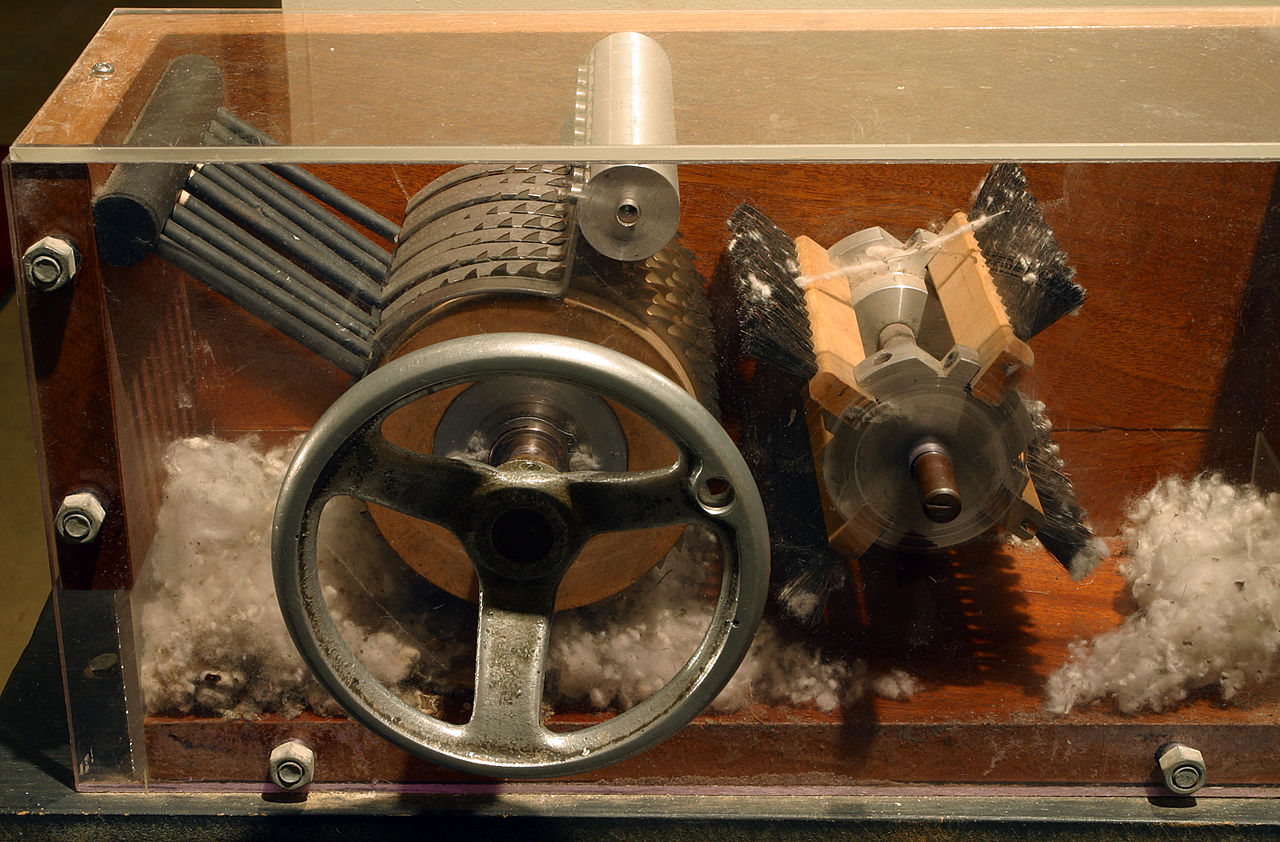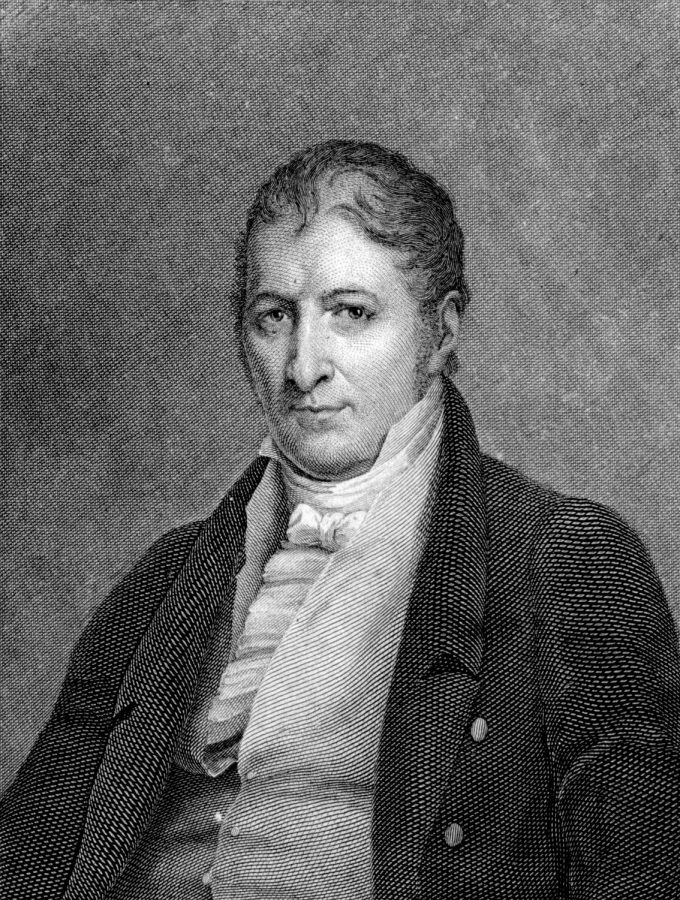Eli Whitney: Father of the Cotton Gin and the Interchangeable Parts
May 7, 2019
Eli Whitney was an integral part of the industrial revolution. His contribution during the 1800s proved to be extremely beneficial due to how it impacted the factory life, along with influencing the weapons used during wartime.
Although Eli Whitney grew into a family of farmers, he was always mesmerized by the way science and the art of machinery worked. Around his twenties, Whitney attended the college of Yale, where he studied the various concepts and experiments in science along with studying mathematics, Greek, Latin, and philosophy. Whitney had hopes to pursue law but due to a shortage of money, Whitney decided to go to Georgia where he would save money, while working as a tutor.
 When he went into Georgia as a completely unemployed man, he befriended Catherine Greene, who guided him into bringing a change into America. Greene introduced Whitney to how hard it was for plantation owners to grow cotton. She explained that cotton plants contained seeds which were really difficult to separate, leading to slaves facing a ton of laborious work. Greene also said how tobacco became more of a burden on farmers, rather than a profit. Tobacco was really hard on the land, taking out all of the nutrients from the soil. Moreover, the other crops such as rice, indigo, corn, and wheat were not that profitable either. This resulted in the South facing many economic difficulties.
When he went into Georgia as a completely unemployed man, he befriended Catherine Greene, who guided him into bringing a change into America. Greene introduced Whitney to how hard it was for plantation owners to grow cotton. She explained that cotton plants contained seeds which were really difficult to separate, leading to slaves facing a ton of laborious work. Greene also said how tobacco became more of a burden on farmers, rather than a profit. Tobacco was really hard on the land, taking out all of the nutrients from the soil. Moreover, the other crops such as rice, indigo, corn, and wheat were not that profitable either. This resulted in the South facing many economic difficulties.
Whitney was introduced with a whole new side of America, where situations went to the point where there was basically no need for slaves. Since there was no profit coming from the crops, planters began to believe that the slave’s labour did not match the cost for his maintenance. After learning about the many hardships of the people in the South, Whitney began to create a machine which through the use of hooks, wires, and a rotating brush, could help make the process of making cotton more efficient. In 1793, Whitney was able to create an invention that would change the harvesting of cotton forever. The invention of the Cotton Gin helped to efficiently removed the sharp seeds.
The effect of Whitney’s invention was seen when America was growing about three-quarters of the world’s supply of cotton, most of which was shipped to New England, where it was manufactured into cloth. Although it was true that the cotton gin reduced the amount of labor it took to remove the seeds, it did not reduce the need for slaves to grow and pick the cotton. As a matter of fact, this invention led to the need for slaves to escalate. This led to every one in three southerners becoming a slave.
Moreover, in the eighteenth century, weapons like pistols and muskets were all constructed by hand, making gun-making an extremely skilled craft. Because of this, every gun was special in its own way and if it broke, it would not be able to be easily repaired. Becoming very popular after the introduction of the Cotton Gin, Whitney introduced the concept of interchangeable parts. His idea was to create nearly identical parts that would be able to be easily produced and replaced.
Within a short time frame, which was less than two years, he obtained a government contract to manufacture 10,000 muskets within an extraordinarily short time frame of less than two years. The creation of the Interchangeable parts by Whitney was significant for many reasons during the time of invention. His idea made is so much easier to replace one part of a weapon, rather than replacing the whole weapon. This had a significant effect on factory workers as well, because the invention enabled unskilled workers, unlike before, to produce large amounts of weapons at a faster speed and a much lower cost.






















































